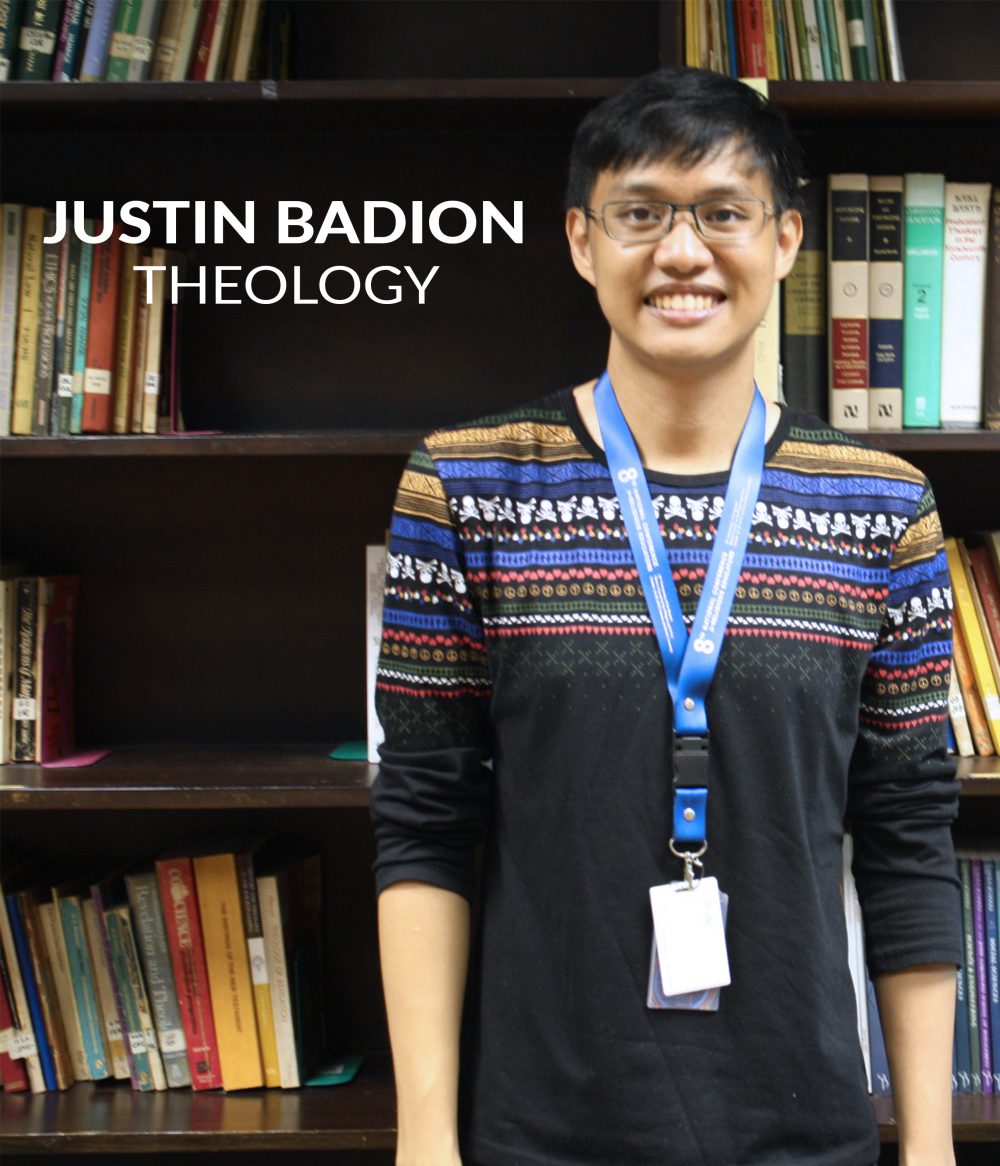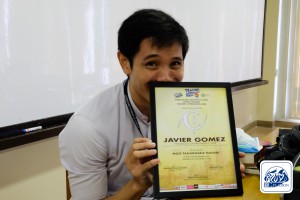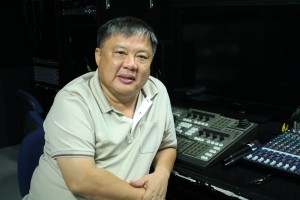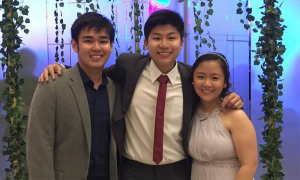Stephanie Sayson, Celadon’s President, interviews Theology professor, Justin Badion. Sir Badion is very passionate about touching lives, contributing to the Church, and making a difference in today’s youth. Below is a transcript of the engaging interview:
Stephanie Sayson (SS): What inspired you to become a professor of the Ateneo?
Justin Badion (JB): Back in college, my course was Management [which was a bit far] from Theology. My friends and I—some were blockmates, some were high school classmates—decided to join this Ateneo org called ANI, Alay ni Ignacio. I’m not sure if it’s still the same now, but before, it was a teaching org. We taught public school high school students from the Marikina and Quezon City areas. Usually, they had difficulty in reviewing for college entrance exams, so we provided supplementary classes during the summer. That time, it was like a whimsical choice. Friends, [I invite you,] it would be a nice experience.
Being a teacher was one of the choices in my head, but my parents still expected me to go corporate. I also expected myself to go corporate at some point. Being a teacher was not part of the plan. That first summer, I taught Math, which is a bit weird. The experience changed my perspective on things. Teaching is very worthwhile. You can see how you’ve participated in touching people’s lives and maybe help them get to where they would eventually go. Even if it was just one summer class, you feel that you were able to contribute, somewhere, somehow. That kept me staying in the org, and that kept me wanting to teach in one way or another.
However, in the long run, I told myself, if you do want to teach full time, then you have to teach a particular subject. The thing about me is that I’m above average in most things, but I’m not exemplary in any particular thing, especially with my majors. At that point, I really didn’t know what I would teach yet, but I already had [an] intuition to be a teacher. It was only after taking the four Theology courses when I started to say, parang kaya ko’ to. (It was only after taking the four Theology courses when I started to say, “I think I can do this.”) This is where I could give back somewhere, somehow, not just to the Ateneo community, but maybe this is also where I could contribute to the bigger picture of the world, of the Church. This is coming from someone who has, for the longest time, not been very religious but spiritual. It was in Ateneo that I found myself again in terms of faith and really found a niche to teach in and that was in Theology.
I found myself wanting to teach Theology but without the requisite to teach it because you had to have taken at least 9 units of a Master’s degree in Theology. If [I] wanted to stay for the long haul, then [I had] to complete that degree. I applied for a Master’s program here in Ateneo, but you have to be a teacher to enter the program. And to be a teacher here in the department, [I] had to have master’s units, so it was a catch-22. For me, I felt that the Spirit moved and they allowed me to enter the program even though I wasn’t a teacher yet. By the end of that school year, I started teaching, which allowed me to stay in the program. That’s how I ended up staying here.
SS: Why did you choose Ateneo over the other universities?
JB: I was brainwashed by the Ateneo. If you stay here for four years, it changes you. I wanted to stay. I just found that the pedagogical or educational system here, the theory behind everything, the foundations—they made so much sense in what I wanted to further in my life and where I wanted to contribute the most. I don’t think it would be easy to teach in [the] other universities because of the mindset and cultural difference. I found that the Ateneo culture fits my style and my set of values.
SS: That’s true, Sir. When I look at my batchmates from UP and even in La Salle, the culture is really different. Even the religion classes, iba talaga. (Even the religion classes, it’s really different.)
JB: Yes, you think differently after your education here. And I hope that’s what I’m contributing to in what I do.
SS: You mentioned a lot about contributing to and touching people’s lives. What do you like most about teaching?
JB: Daily interactions with people. I’m not comfortable with crowds and speaking in front of people and yet I chose this particular career. [I find it] funny. You meet so many people with so many stories. Something as simple as reading papers or faith narratives would reveal a lot about [the] students. Reading through their stories inspires you and [sometimes] even scares you because a lot of the students have been through so much. It puts you back to the reality that everyone has struggles, and in some way, you grow as a person as well by encountering these narratives. You also meet a bunch of new friends, and it’s fun. I don’t think I would have stayed this long if it wasn’t fun. So I like the fun, the interactions, and seeing other people grow in their understanding of things, even if they’re not believers.
SS: What’s the main takeaway that you want for your students?
JB: At the very least, I want to help them understand what [is it]that they want to do with their [lives]. That’s the focal point of my teaching—vocation and finding one’s place. If I helped in that process, that’s enough. On another aspect, I want people to understand better what Catholicism is, especially for those who aren’t part of the Church. Maybe that’s my way of helping out the community. It’s not much but it’s one way of contributing.
SS: So that’s what you want them to have as a takeaway. How about you? What do you think is the most important thing that your students imparted to you?
JB: Having more people skills was something that I grew as time went by. You get to face different kinds of students. Some are challenging, exciting to work with, into the course, not into the course, but it allowed me to understand people better. In general, people are puzzles, but you kind of unlock [a bit of] humanity each day with these interactions. There are just so many people you deal with as a teacher. You spend a sizable amount of interaction with each of them, and this helps you understand the human condition better. The consequential stuff were the friendships and late night-outs. I’ve done that with my students in the past, but the major takeaway for me is growing into an understanding of people, especially for someone who is not a people person. I guess I can thank them for who I am now.
SS: You’ve been highlighting that you like interacting with your students. Does that mean that your favorite part in the semester is orals?
JB: Oral exams are very difficult. I think this is something that students don’t know, but it is very exhausting for the teacher who sits there and listens because you can’t just shut off yourself while listening to the exam. You have to actively think, listen and evaluate for a week or two. Most of the time, the most [likely time that] I break down health-wise is during the time that oral exams are being done. My favorite would probably be the interactions that come from the classroom. Some of the most satisfying moments are when the class laughs at your joke, or relates to your story, or when someone shares his story in class, or getting pabaon cards at the end of a semester. You can’t please everyone, but for those who felt that it was worthwhile to go to my class, it felt like you’ve done something and made a difference. As a teacher it’s hard to get validation, not even with the evaluations because they seem so robotic. The validation comes after the class or the semester when students still come up to you and ask for help or talk to you about all sorts of things.
SS: What is one advice you can give students?
JB: I’ve been an Atenean once. I’ve been through the four years of college, and it can be backbreaking. There are times when you’d want to give up [because] it’s tough, but one thing is for sure: generations of Ateneans went through the same thing and they survived, so you’ll survive, too. There will be nights when it feels like there is no point to it all. And there will come a time when you have to stay awake for 72 hours straight, or moments when you fail a really important exam. I’ve been through all those before, but I’m still here. There’s so much left after staying in the Ateneo. That’s something to look forward to.
At the same time, I want my students to remember that there is a home in the Ateneo. A lot of my friends always say that it’s so different outside of the Ateneo. The struggles you face now are nothing compared to the ones in the real world, but Ateneo never fails to be a home. At the very least, you have a home to go back to.
Another would be this quote I always say, “Pain is inevitable, but suffering is optional.” Ganoon talaga ang mundo eh. [That’s how the world is.] But at the end of the day, there’s always something to hope for. Find that which anchors you, and use that as you go along the struggles of life. Find that anchor and allow it to keep you steady, because sometimes the waves would be too much.
Follow the Teachers’ Appreciation Week page, to know more about professors in Ateneo de Manila!
Check out these professors in Teachers’ Appreciation Week:




